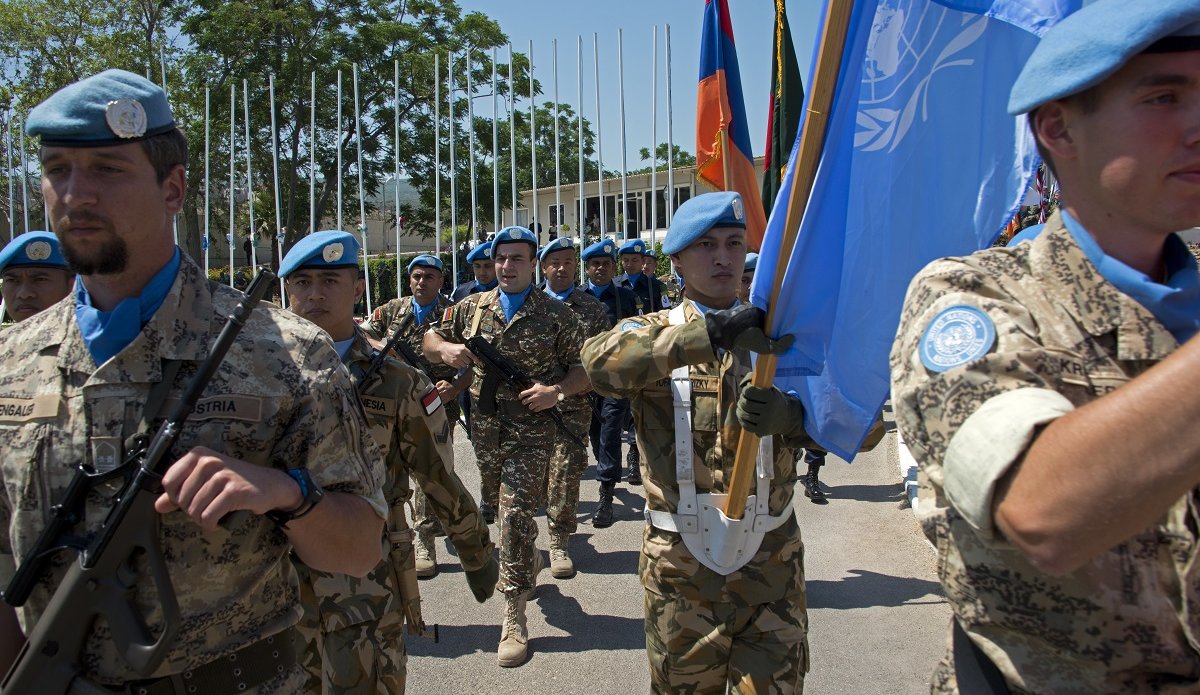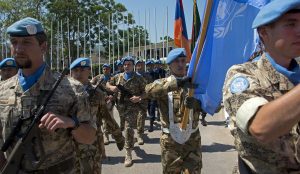The Case for Peacekeeping


By Grant Radke
There can be no doubt that the United States is retreating from the world stage, and nowhere has this been more apparent than in the United Nations. In the past year, the US has extricated itself from UNESCO, the Paris Climate Accord, and, most recently, the JCPOA (colloquially “the Iran Deal”). Coupled with a $250 million dollar reduction in American contributions, it has become abundantly clear that the administration is unconvinced by the international community’s promises. But American support for peacekeeping operations must not falter because, as recent operations have demonstrated, the success of the UN as a peacekeeping force largely depends on the political will and material support of the American government. Given this position, it remains in the national interest to maintain our security commitments. The two cases that best illustrate the dynamics at play are the operations in Somalia and the former Yugoslavia, two near-contemporary cases in the Nineties, the former a failure and the latter a success, both defined by the actions of American-led coalitions.
The peacekeeping operation in Somalia, UNOSOM, was launched in April, 1992 with a simple, but elusive goal: Maintain a ceasefire and provide humanitarian aid to contain the Somali Civil War. The mandate was to be enforced by both peacekeepers and American military servicemembers. But just over a year into the operation, following the Battle of Mogadishu, President Clinton announced the United States would withdraw all its forces. Undeterred, the Security Council extended the mandate for another year; it seemed that the peacekeepers would stand alone. This was not the case. Without American support, the UN forces were under-equipped and overworked, and the UN withdrew all its forces just one year after the Americans, without establishing the ceasefire and without stopping their primary target, Mohamed Farrah Aidid. In short, the UN had found operating without American assistance too burdensome, but the US had found peacekeeping too unpopular. As a result, the security crisis went unresolved and Somalia was ceded to the same warlords who had fought American troops and stole aid from the Somali populace.
In comparison to the Somali case, the contemporary NATO-UN partnership in Yugoslavia appears to be an unqualified success: It demonstrated that the United States could use the authority and infrastructure offered by the United Nations’ Department of Peacekeeping Operations to secure its political objectives, so long as American leaders were assertive. Following reports of ethnic cleansing, the UN established UNPROFOR in 1992 with an ambitious mandate. The Protection Force was to establish safe zones for displaced Yugoslavs, meant to provide not just humanitarian aid, but direct military protection from ethnic militias.
As the Serbian artillery campaign intensified in 1993, the U.S. secured a no-fly zone through the Security Council, but NATO was permitted to do nothing more than report violations. Following the shelling of the Merkale market in Sarajevo, the UN unshackled NATO air forces by requesting air strikes. For the remainder of UNPROFOR’s involvement in Yugoslavia, NATO’s subsequent air campaign, Operation Deliberate Force, kept pressure on the Bosnian Serb army.
Not only did NATO remain committed to conflict resolution, it actually outlasted the UN’s own protection force by nine years, sending its own troops to maintain the peace. In essence the UN had been fighting a losing war on the ground, setting the stage for an embarrassing retreat, much like the one they were about to face in Somalia. Political scientists argue that it was the authorization of American-led NATO airstrikes served as an inflection point, bolstering UNPROFOR and encouraging combatants to sit for negotiations. The American commitment opened a theater in which Serbs could not compete and saved the peacekeeping effort. And by dint of its military commitments, the United States earned the right to broker the peace that followed.
At the present, Somalia remains a broken state, in fact it is second on the global Fragile States Index.[1] Bosnia and Herzegovina, on the other hand, is increasingly an asset to American allies, with nascent support for admission to both the EU and NATO. The UN peacekeeping operation, undergirded by NATO military action, allowed Bosnia’s transformation from a failed state into a potential political and economic partner.
But it did not have to be so: In June, 1995, when an American pilot was shot down over Bosnia, it became clear that, as in Mogadishu, U.S. servicemembers were facing true danger in another peacekeeping operation on the far side of the Atlantic. Within a week, Congress demanded Clinton end American participation in the Balkan blockade; the New York Times ran a story on the “Pride and Limits” of the UN mission.[2] It seemed that, once again, the U.S. would abdicate. President Clinton, however, did not repeat the mistake of 1993 and instead redoubled the American commitment; Deliberate Force would officially begin two months later. It was a clear “lessons-learned” moment for Clinton, a lesson that I hope we have not forgotten.
Today, the public reputation of the UN is as damaged as it was in ‘94, following the withdrawal from Somalia. (As of February, 1% fewer Americans believe the UN is doing “a good job.”)[3] And it this general distrust of the United Nations that has facilitated the Trump Administration’s general retreat from its obligations. However popular it may become, the United States cannot surrender its role in peacekeeping. It is easy to conclude that, with the unipolar moment behind it, someone would take up the mantle in America’s absence, but this just is not the case: The nations with the military capacity to save a large-scale UN mandate (Russia, China, and Iran for example) seem uninterested in collective security. Further, even if they were, it is unlikely that these nations would use peacekeeping to build situations that reflected American interests or values.
In short, when it comes to global security crises, the UN-U.S. peacekeeping relationship remains the only the game in town. But as the cases of the early Nineties suggest, while substantive long-term success is possible, it requires absolute commitment on behalf of the United States. Further, supporting peacebuilding offers the U.S. government the unique position of being both a player and a referee in the resolution of the conflict, a situation that can be heavily leveraged, as evidenced by our extensive involvement in the construction of a liberal Bosnia, one which today supports the same political and economic integration the Yugoslav Wars had interrupted. For these reasons, the Administration should assure the Secretariat that America remains devoted to the UN’s security functions, regardless of its broader skepticism.
[1]J. J. Messner, “Fragile States Index 2018: Issues of Fragility Touch the World’s Richest and Most Developed Countries in 2018,” Fund for Peace, April 19, 2018. accessed May 10, 2018. http://fundforpeace.org/fsi/2018/04/19/fragile-states-index-2018-issues-of-fragility-touch-the-worlds-richest-and-most-developed-countries-in-2018/.
[2]Roger Cohen, “Bosnia Battle Shows U.N.’s Pride and Limits,” The New York Times, June 6, 1995, accessed May 10, 2018.
[3]Justin McCarthy, “Snapshot: A Third in U.S. Say United Nations Doing a Good Job,” March 01, 2018, accessed May 10, 2018. http://news.gallup.com/poll/228341/snapshot-third-say-united-nations-doing-good-job.aspx.